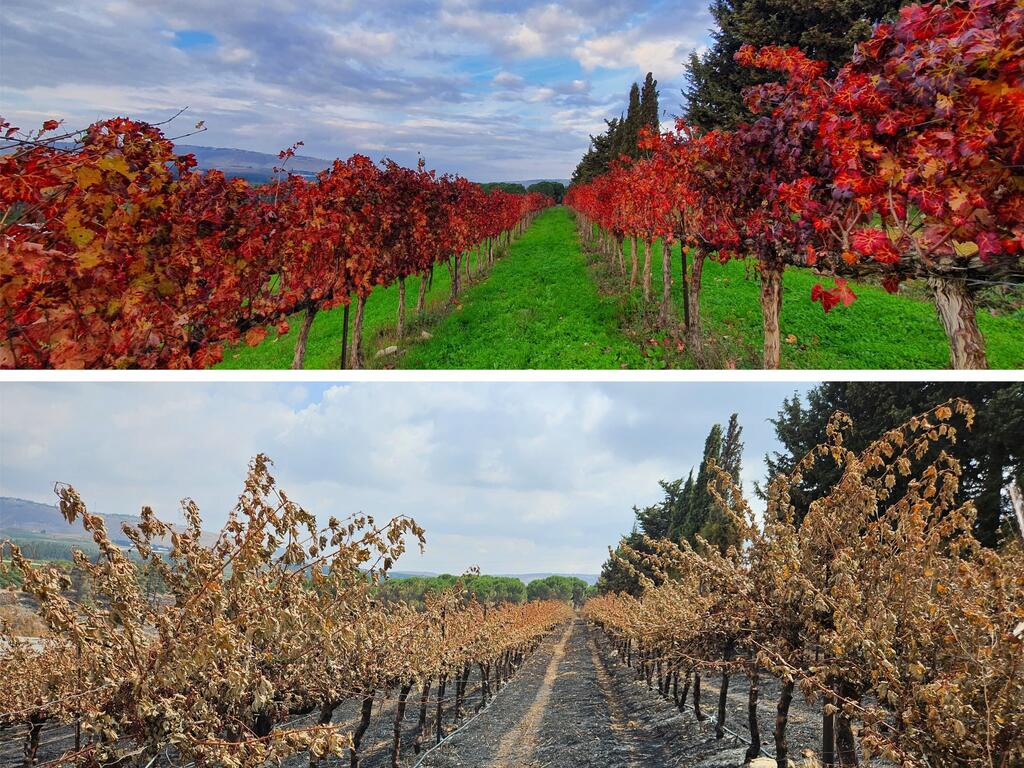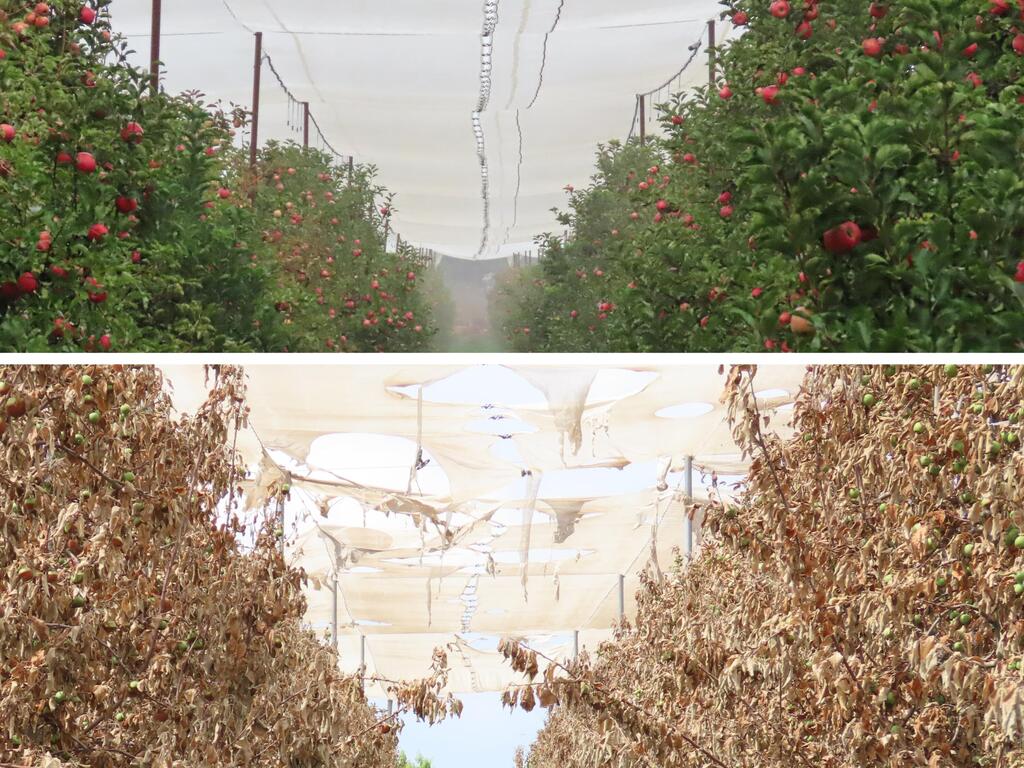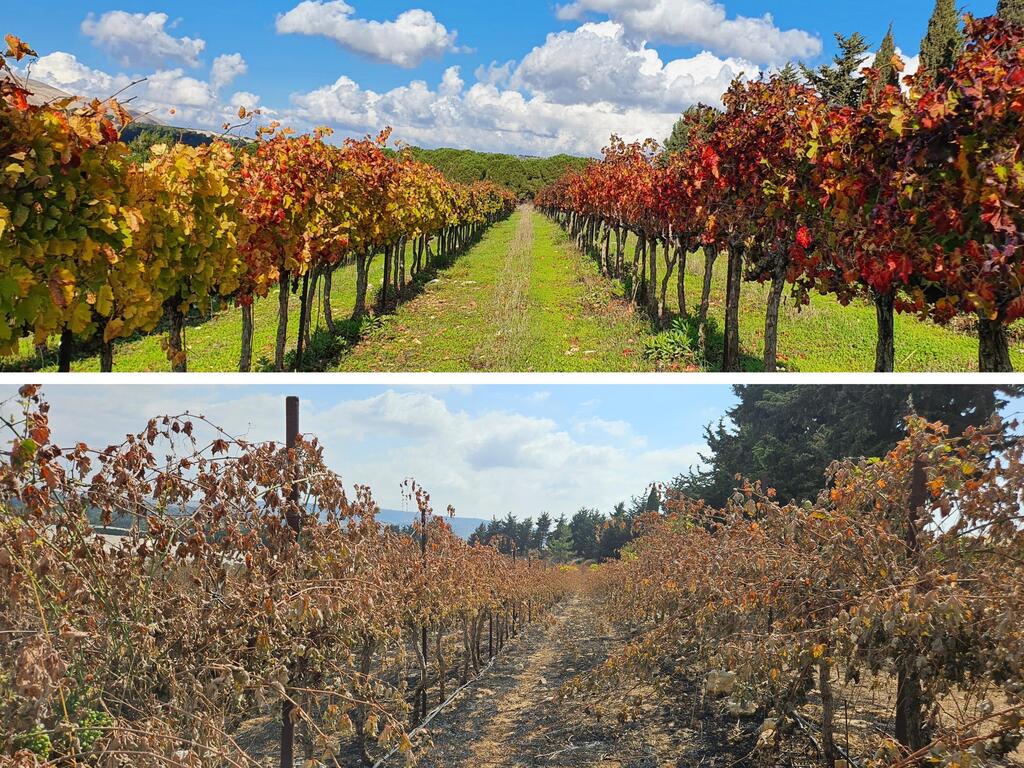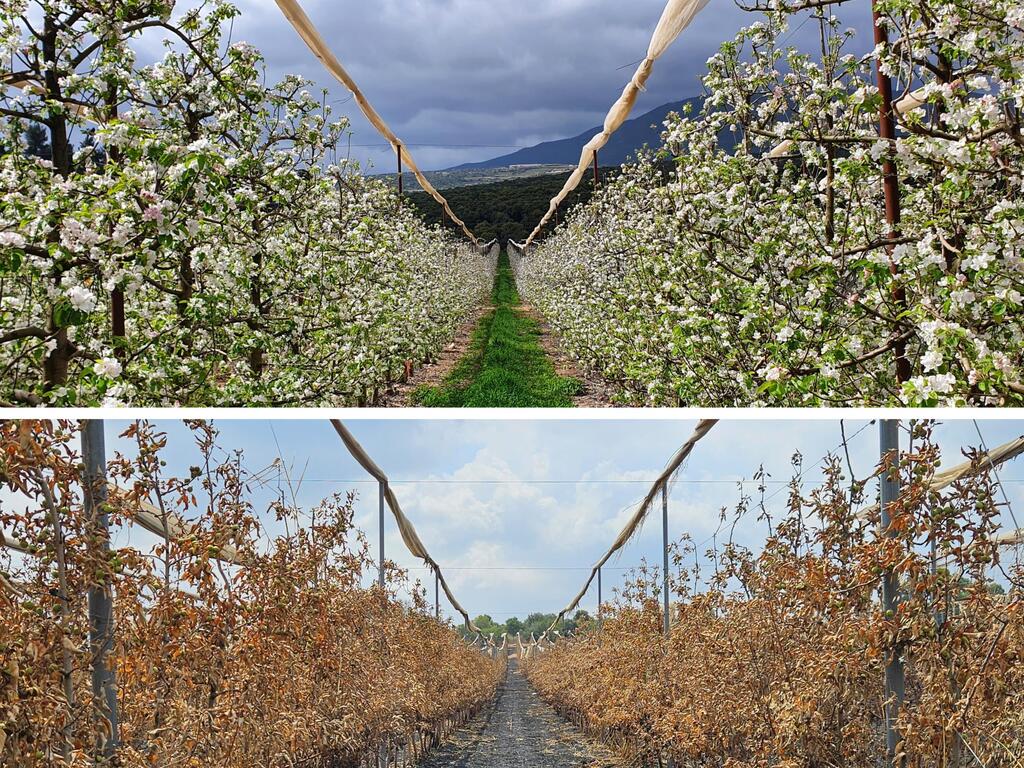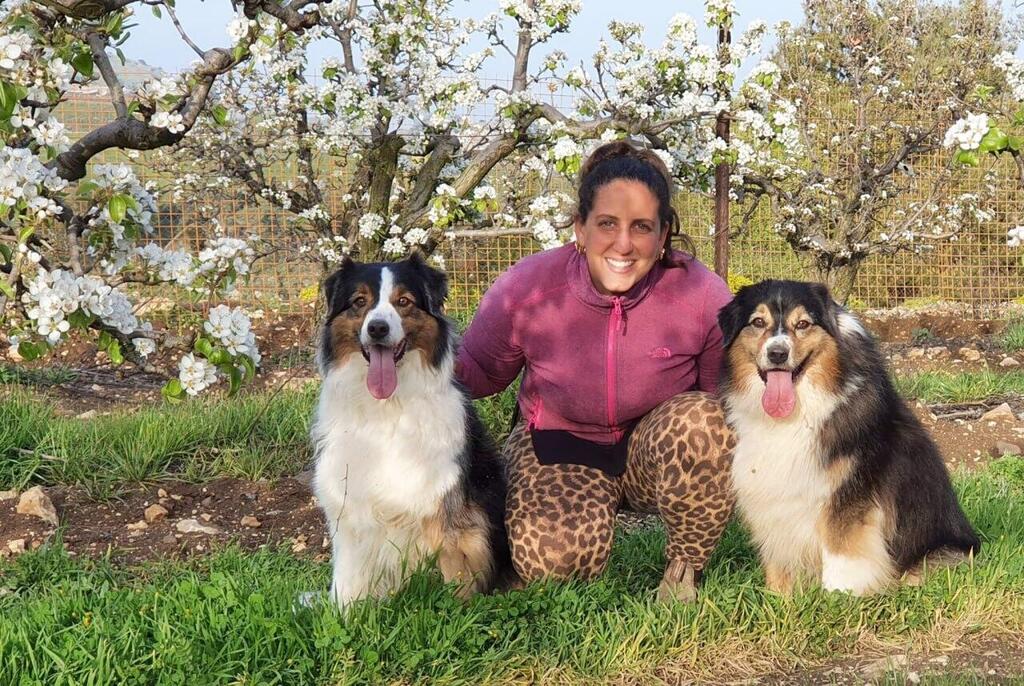On the same day that Kibbutz Bar'am in the Upper Galilee celebrated its 75th anniversary, its members faced a devastating loss as 20% of their orchards were destroyed by fires caused by Hezbollah's rockets. Approximately 60 acres were burned and lost. "The fire spread rapidly through 70 rows of fruit-laden trees, and all we could do was try to prevent it from spreading further," recounts Ya'ara Waxelbaum-Stahl, an amateur photographer and wife of Paul, the orchard manager.
The lush fruit trees of the kibbutz have been an integral part of Ya'ara's life. Born among them, she even met Paul while working in the orchards under the scorching sun. Her wedding photos were, of course, taken in the shade of these trees. For years, she has documented their beauty. "I've been photographing our orchards for so many years. I never imagined they would look like this – burnt and devastated. These sights smash my heart in a million pieces."
Significant efforts spanning years have gone into cultivating the deciduous tree plots. The phrase "blood, sweat and tears" couldn't be more accurate. The founders of Bar'am have weathered tough times before, but the kibbutz has never experienced such a profound sense of helplessness. The Israeli leadership seems to normalize the daily reality of rocket fire into Israel's sovereign territory, which has unwillingly turned into a buffer zone with displaced residents uncertain of when they will return.
"Our parents arrived on rocky soil, and even then there were enemies in Lebanon – but now we feel like we are alone on the border. We are dealing with Hezbollah attacks that destroy our life's work, and there is no one to stop it. The damages are yet to be fully assessed, but it is estimated that most of the trees will not survive, and we will have to uproot them," she said.
Waxelbaum-Stahl clarifies, however, that abandoning the land is not an option. "We do not intend to give up. Where we uproot, we will also plant. We have been here for 75 years, and this is our life. The question is how much longer this reality will continue. The state will have to step in and help the farmers, as millions of investments have been lost. This is incompetence. When you see your life's work go up in flames and there's nothing you can do about it – that is something we cannot accept."
Aside from the severe agricultural damage caused by Hezbollah's rocket fire, numerous fires erupted across the Galilee and the Golan Heights, causing extensive damage to forests and open areas.
At the beginning of last month, the Jewish National Fund (KKL) reported that tens of thousands of acres of natural forest were burned due to Hezbollah's rocket barrages from Lebanon. Following a situation assessment, it was revealed that since the start of the war, many forests in the north have suffered twice as much damage compared to the Second Lebanon War in 2006.
In the Hasulam Ridge Forest near Rosh Hanikra, approximately 296 acres were burned, and in the Naftali Mountain Ridge Forest, around 49 acres were affected, including partial damage in some areas. Some 90% of the Naftali Mountain Forest was engulfed in flames – about 1,980 acres burned to varying degrees. Among other areas affected was the Birya Forest near Safed, which suffered severe damage after hundreds of acres of woodland were consumed by fire.



